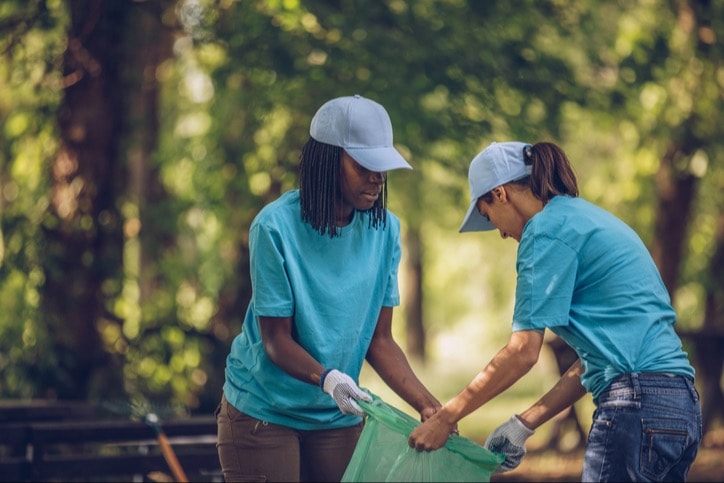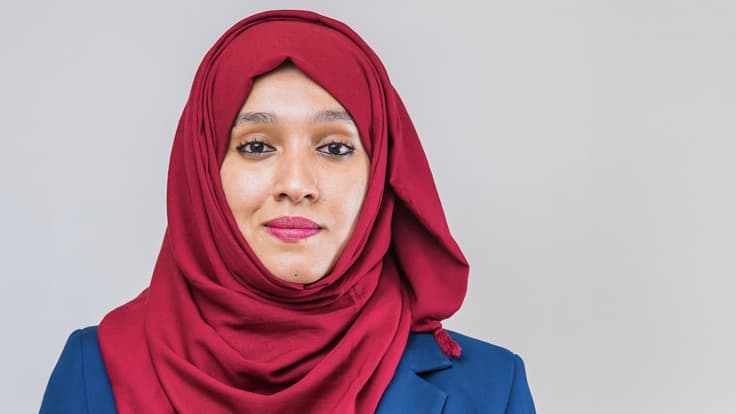LET'S ADD RELATIONAL EXPERTISE TO OUR SUSTAINABILITY TOOLKIT
For Nasra Nanda, CEO of Kenya Green Building Society, localisation is all on the journey to urban sustainability. We caught up with her ahead of her appearance at Sustainable Cities in Action Forum 2024
Nasra Nanda is working for a future in which local communities, especially those living in informal settlements, have ownership of the urban sustainability conversation
Communities are ecosystems themselves, and the built environment is an ecosystem of opportunities and challenges. If we solve those challenges correctly, we have a platform to create truly sustainable markets
As our climate warms, how can cities in MEASA mitigate and adapt?
First, I would caution that it’s not necessarily a good idea for global south cities to look to the global north for solutions because those countries, including from a climate perspective, are very different. Second, we should be cognisant that we often overlook our local traditional ways of building. For example, on Kenya’s coastline communities still build with locally available materials such as rammed earth. Or in Dubai, traditional communities were quite high-tech in how they built, using techniques that created cooler habitations. Where we went wrong was in not looking to the north to complement what we had, but to replace what we had, including materials and techniques that are locally available and locally adaptable.
The other consideration is cost. When people talk about sustainability being expensive, it’s because it often means importing from outside rather than using what’s locally available in terms of materials, craftmanship and buy-in.
If the solutions are there, is it now about shifting mindsets?
When modernisation happened, we in the global south thought: ‘success equals London, success equals New York’. There was a mindset of not looking fully at what you have and making it work for your people. However, last year was important for the global south, and particularly Africa, because for the first time we had a conversation around a new financial architecture, which came from the realisation that Africa needs solutions which are localised and driven by Africans. And that could apply to any context, not just financial but urban. That mindset shift is already happening.
How will that play out in cities and communities?
In Kenya we have launched the Building Climate Resilience for the Urban Poor programme. We will be looking at local communities in growing cities and translating climate resilience into how it benefits those communities. That’s a huge opportunity because typically, when a community tells you what they need, it might not be something you are ready to hear because you might have a global qualification which negates or does not consider these perspectives. Additionally, it’s about humanising the sustainability narrative. The sustainability conversation doesn’t lack technical expertise. What it lacks is relational expertise.
So, this is an example of dovetailing environmental and social sustainability goals?
Definitely. For me, whether it’s environmental or governance-related sustainability, it boils down to people. That social interaction is us with nature and us with the bigger picture. How do people relate to the natural resources around them? How do we all contribute to the success of a city or a country? Having that purpose is what empowers communities. And that happens through engagement and collaboration. Don’t forget also that communities are ecosystems themselves, and the built environment is an ecosystem of opportunities and challenges. If we solve those challenges correctly, we have a platform to create truly sustainable markets.
How big is the employment opportunity within this community-first green economy?
More than two million of Nairobi’s population reside in informal settlements. That could easily equate to a million jobs. Green jobs need not mean working for a Fortune 500 company as a chief sustainability officer. You can have jobs that allow entry for people, skilled or unskilled, in an informal context. Maybe you don’t have a degree in environmental science, but you might understand waste management, so that could create opportunities for these communities’ waste collectors and segregators – basically green jobs.
Could informal settlements become blueprints for environmental living?
Absolutely. And that’s something we are trying to do at the Kenya Green Building Society. For example, environmental rating tools such as LEED focus on very formal ways of building but opportunities for the global south are often about mass populations. So perhaps we can create rating tools which set less rigid requirements, maybe for environmentally flexible or green communities. Sanitation and waste management might be included because for slum populations those issues are huge. We could also look at whether they use locally available, nature-based materials.
Is there buy-in among municipal decision-makers to support this type of solution?
The Building Climate Resilience for the Urban Poor programme, which Kenya is leading with Brazil, is trying to understand what resilience means for the urban poor and create actions and support. The three things we have proposed to government are: community; capacity-building for communities; and community engagement. Firstly, disaster preparedness and waste management create those informal green jobs. Then affordable housing is a government priority area, but we need to look at housing in the context of formal and informal. How they looked at it in the past probably didn’t make it bankable. But if we rephrase it in terms of creating a resilient city, that unlocks opportunity. And right now, local government and mayors are keen to be part of this conversation.
Finally, there’s an opportunity around micro-forests in urban spaces and how they might create carbon sinks for cities, which could unlock both carbon and biodiversity credits. Nature-based finance is a big area of focus right now, but it hasn’t really been looked at in the urban context. So, could biodiversity be a service to a city?
As a last word, I would reiterate that it’s crucial that sustainability is translated in the context of the market it seeks to serve. What sustainability looks like for the global north may be very different to what it looks like for the global south. But neither context negates the other. And that for me is key. If we are open and flexible, then we have inclusivity and that’s how we achieve what we want – from a business perspective, from a people perspective and from an environment perspective.
SUSTAINABLE CITIES IN ACTION FORUM 2024
From 5 - 6 March 2024, more than 400 urban leaders and experts gathered at The Nexus, Expo City Dubai, for the inaugural Sustainable Cities in Action Forum. During a packed programme of dynamic panel discussions and cutting-edge workshops, delegates from all walks of life explored actionable solutions for catalysing urban development across the Middle East, Africa and South Asia.
If you are interested in being part of future editions of the Forum, sign up here
We'd love to connect with you
For general enquiries, please fill out the contact form or send an email to impact@expodubaigroup.ae

